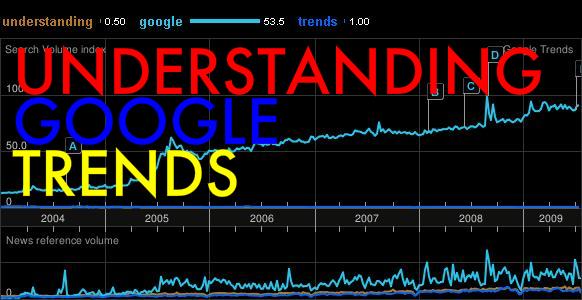Saturday, June 19, 2010
Vuvuzelas
Always be able to find the South African World Cup in an instant or less... This graph is dynamic, and will change with time. But you'll always be able to find June 2010 on it: just look for that massive spike, when the global soccer championship added a new word to the vocabularies of the people of the world: vuvuzela.
For someone like me who doesn't follow sport, it's the stuff around the football that intrigues me about the World Cup. A vuvuzela is a kind of horn that is popular in South Africa and, without exception, reviled in every other country of the planet. I would have guessed that people were Googling it to discover how to avoid being driven mad by it. But it turns out that what people are interested in includes: "vuvuzela mp3", "youtube vuvuzela", "buy vuvuzela", "vuvuzela acheter", "vuvuzela kaufen". But "vuvuzela ban" is also there, so who knows?
In any case, no surprise that it's South Africa Googling it the most. The rest of the top ten is entirely in Europe, though. Maybe they can hear it from there.
Saturday, June 12, 2010
Siamese Twins #2
More Siamese Twins. You might want to read last week's entry to understand the concept. But here's a handful more two-word phrases that stick together like glue.
Obviously 'hammer' is going to be Googled more often than 'sickle' - now that the USSR is dead, the only time you ever hear 'sickle' is in connection with anaemia. It is the USA where sickle is Googled the most.
Excluding lightning, 'bolts' are only one thing, where 'nuts' are rather more. I doubt that construction equipment is even the prime reason why 'nuts' are Googled, when there's foodstuffs to be had.
And speaking of lightning... it turns out thunder tends to be Googled more often than lightning, and for one stretch there, much more. Interesting that there is a professional NHL team called Lightning, and an NBA team called Thunder (which I'd never heard of before now).
Although 'puff' kills 'huff' everywhere in the world, the difference is (by far) least pronounced in the USA. The legacy of the Huffington Post?
Suppose its the music- and drug-saturated all-night party that puts 'rave' so far ahead of 'rant'? Well, 'rave' is most Googled in the US, where I was expecting a European country. But what do I know?
Obviously 'hammer' is going to be Googled more often than 'sickle' - now that the USSR is dead, the only time you ever hear 'sickle' is in connection with anaemia. It is the USA where sickle is Googled the most.
Excluding lightning, 'bolts' are only one thing, where 'nuts' are rather more. I doubt that construction equipment is even the prime reason why 'nuts' are Googled, when there's foodstuffs to be had.
And speaking of lightning... it turns out thunder tends to be Googled more often than lightning, and for one stretch there, much more. Interesting that there is a professional NHL team called Lightning, and an NBA team called Thunder (which I'd never heard of before now).
Although 'puff' kills 'huff' everywhere in the world, the difference is (by far) least pronounced in the USA. The legacy of the Huffington Post?
Suppose its the music- and drug-saturated all-night party that puts 'rave' so far ahead of 'rant'? Well, 'rave' is most Googled in the US, where I was expecting a European country. But what do I know?
Labels:
English,
language,
Siamese twins,
United States
Saturday, June 5, 2010
Siamese Twins #1
Siamese twins. No, not Chang and Eng. It's a grammatical concept to describe couplets like 'spic and span'. Together, they mean 'clean', but only together. You can't say, "this floor is spic, but I don't think it's span enough." You can't say 'span and spic' either. They're fixed.
So which is Googled more?
In the case of 'spic and span', no surprise, since 'span' is a useful word by itself, and 'spic' is just a racial slur. Except in Macedonia, where it is hugely Googled, and presumably means something else.
Heaven and hell: fascinating, this one, and probably worth its own column. Heaven beats hell, but not by much. And the odd thing is that the gap is narrowing: recently, hell has surpassed heaven. The countries biggest on heaven are the Philippines, the UK and Australia, but people in New Zealand and the Czech Republic Google hell more than heaven.
I'm not sure that 'cranny' means anything at all, separated from 'nook'. And 'nook' isn't the most meaningful word either - at least not till recently. That huge spike is the result of Barnes & Noble launching something I can't be bothered to learn about called 'Nook'.
Now that's a beautiful graph. And I didn't expect to find these two words so closely linked: after all, 'pros' also means 'professionals', and 'cons' also means 'convicts' (and why has no-one ever made a TV show about those two groups of people and called it 'Pros & Cons'?). But they are clearly linked, on a delightfully zigzaggy graph that appears to be diverging ever so slightly.
For reasons that might not be 100% noble, the ladies leave the gentlemen completely in the dust. The nations that have Googled 'ladies' most (Ethiopia leads the pack) haven't Googled 'gentlemen' at all.
With court cases being popular reading material, but the internet being based on infamously buggy computers, I wasn't sure whether 'trial' or 'error' would be Googled more, but in retrospect it's obvious: computer error messages are one of the few truly practical uses for Google. It's in India where those computers screw up most.
So which is Googled more?
In the case of 'spic and span', no surprise, since 'span' is a useful word by itself, and 'spic' is just a racial slur. Except in Macedonia, where it is hugely Googled, and presumably means something else.
Heaven and hell: fascinating, this one, and probably worth its own column. Heaven beats hell, but not by much. And the odd thing is that the gap is narrowing: recently, hell has surpassed heaven. The countries biggest on heaven are the Philippines, the UK and Australia, but people in New Zealand and the Czech Republic Google hell more than heaven.
I'm not sure that 'cranny' means anything at all, separated from 'nook'. And 'nook' isn't the most meaningful word either - at least not till recently. That huge spike is the result of Barnes & Noble launching something I can't be bothered to learn about called 'Nook'.
Now that's a beautiful graph. And I didn't expect to find these two words so closely linked: after all, 'pros' also means 'professionals', and 'cons' also means 'convicts' (and why has no-one ever made a TV show about those two groups of people and called it 'Pros & Cons'?). But they are clearly linked, on a delightfully zigzaggy graph that appears to be diverging ever so slightly.
For reasons that might not be 100% noble, the ladies leave the gentlemen completely in the dust. The nations that have Googled 'ladies' most (Ethiopia leads the pack) haven't Googled 'gentlemen' at all.
With court cases being popular reading material, but the internet being based on infamously buggy computers, I wasn't sure whether 'trial' or 'error' would be Googled more, but in retrospect it's obvious: computer error messages are one of the few truly practical uses for Google. It's in India where those computers screw up most.
Related articles by Zemanta
- Your Pet's Mess Can Make You a Winner in the Spic and Span "Unleash the Clean!" Photo Contest (eon.businesswire.com)
- Barnes & Noble Goes up Against Kindle, iBooks on the iPad (readwriteweb.com)
- "What if Larry and Sergey wanted to recreate PageRank today? You know what I bet they wish they..." (caterpillarcowboy.com)
- Keep Your House in a 20-Minutes-to-Clean State to Eliminate Last-Minute Stress [Household] (lifehacker.com)
Subscribe to:
Comments (Atom)


![Reblog this post [with Zemanta]](http://img.zemanta.com/reblog_e.png?x-id=c55116a0-4ddd-4677-8f0c-cab4bddd7c15)
![Reblog this post [with Zemanta]](http://img.zemanta.com/reblog_e.png?x-id=e09c6016-3355-47d3-8a16-81ef7553384a)


